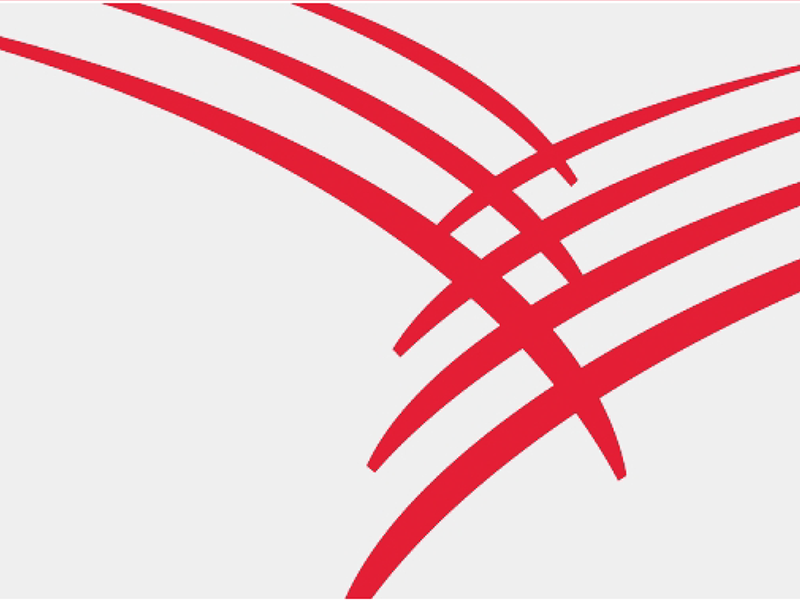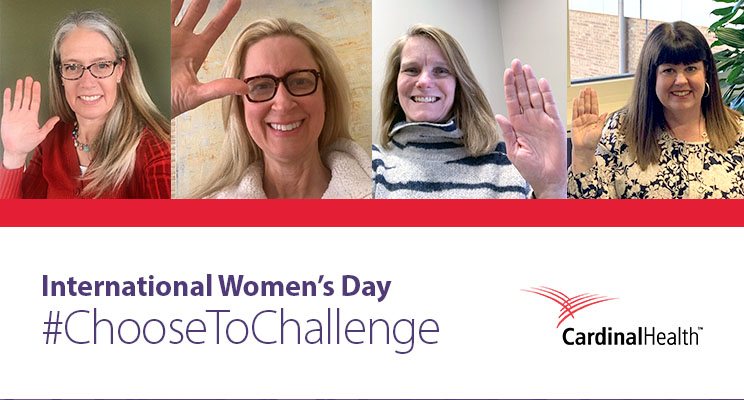 |
Cardinal Health Latest News

03/08/2021
#ChooseToChallenge for an equitable future
In honor of this International Women’s Day, we asked Cardinal Health’s senior-most women to share some of the challenges they’ve faced along the way, and how those challenges led to change and growth. In the highlights below, these female leaders share how they found the power in their own perspectives and their own voices, and how they work to empower others to make their voices heard.
Michele Holcomb, Chief Strategy and Business Development Officer
I was lucky – or perhaps naïve – in that in my early career I didn’t feel disadvantaged by being a woman. I knew that I benefited from the generation before me, who were the real trailblazers and the “firsts” to break the gender barrier. I knew that those women had smoothed the way for me.
When I was an undergrad and then a PhD student in chemistry, women were about 20 percent of the chemistry professors. Similarly, when I joined consulting, about 20 percent of the partners were women. Certainly this was far from equal – but it was enough to show me that I could reach that level. In a way, I may have taken it for granted that anything was possible for me to achieve as a woman.
One of the things that attracted me to Cardinal Health a few years ago was a speech I heard CEO Mike Kaufmann give about gender equity. But in my interfaces with the external world, I found myself working regularly with investment bankers. In this world, I often found myself as the only woman in the room. And, not having been trained as a finance person, I often felt like a fish out of water. I often found in meetings that my perspectives were different from those of others – the men. But because I was new to this world, I often censored myself.
Over time, however, I came to realize that this feeling of otherness was a positive contributor to the conversation. Through this realization, I learned to trust my perspectives and to embrace my unique view. And now I use my unique voice to shape our negotiation approaches and actions in many ways.
As a leader, I feel compelled to share what I’ve learned and to use my position to help support other women; that’s one of the reasons I’m proud to serve as executive sponsor of the Women’s Impact Network, our employee resource group for women.
The generation of women before us blazed the trail. I believe our generation’s job is to widen the trail and remove the barriers and boulders for the women who come next.
Jessica Mayer, Chief Legal and Compliance Officer
I grew up with certain assumptions about my place in the world as a girl and as a young woman. I was raised primarily by my single mom, who went back to school to earn her master’s degree when my sister and I were young, and then worked as a hospital administrator the entire time I was growing up. With my mom’s example, I grew up believing I could do and be whatever I wanted, a belief that was only bolstered by the college I attended, which was a pioneer in women’s education.
It wasn’t until I had completed my education and started working that I began to appreciate that the assumptions I’d grown up with weren’t necessarily the assumptions of other girls and women.
An early awakening to the persistent reality of gender inequities was during my first job as an attorney working in a traditional large law firm. I was in a junior role and one of only a few women attorneys. I came to understand that gender bias – sometimes obvious, sometimes subtle – was very real and affecting opportunities for female lawyers.
I began to understand that women must band together—we’ve got to support each other and speak up about bias. In my experience, that bias is often unconscious, but if we don’t call it out, it won’t change.
As I took on more senior roles, speaking out took on greater importance. As a leader, I have a responsibility to use my voice to help make my team better, to bring different points of view to discussions, and to foster a culture where people know they’re encouraged to speak up about inequity of any kind. Because speaking up is how we shape a better world.
Ola Snow, Chief Human Resources Officer
As a very young woman, I was made extremely uncomfortable in a job by a man who was senior to me. I was afraid to tell anyone. I felt I didn’t have a voice, and that was terrifying. As I gained more experience, I found my voice, but that experience has always stayed with me. It’s one of the reasons I pursued Human Resources as a career. Everyone should have a voice, and everyone’s voice should matter. I use my position to help build a culture where that’s possible.
Another defining experience for me happened several years ago, when I was asked to take the lead in onboarding new employees after a major acquisition at Cardinal Health. I believed that it was a pivotal moment in my career, and I accepted the opportunity, though it meant that I would be away from home for 30 days.
Some of my male colleagues questioned me. How could I leave my family? My kids were in high school at the time; my husband was a stay-at-home dad. Though I would certainly miss my family, I knew they would be fine. And I was pretty certain that no one would have questioned my commitment as a parent if I were a man.
I don’t believe the questions were ill-intended. But they revealed the assumptions we all make about men and women, and the kind of unconscious bias we need to call out and address. That is how we will come to understand each other better, and level the playing field for everyone.
In the past year, particularly, I’ve been working to identify my own assumptions about others. I’ve sought out the voices of black women leaders, at Cardinal Health and in our community, to better understand their experiences and the social injustices they have faced. The more I listen and the more I learn, the more deeply committed I am to a workplace and a world that is diverse, equitable and inclusive.
Sarah Wills, Chief Corporate Affairs Officer
In my 30s, I worked as a policy director for a governor, often one of the few women in the room. When I was new in my role, the Governor asked for policy ideas for how he could support women’s health.
I proposed an idea to back legislation requiring health insurers to cover the costs of mammograms for women under 40 with a family history of breast cancer. I believed that because our state had a large number of young women fighting breast cancer, this policy would have an impact on women’s health, and would be positively received by our constituents. My male colleague, however, argued that young women would prefer free access to contraceptives. I was fairly confident, as a woman under 40, that they were wrong. We decided to poll some of our constituents, and found an overwhelming preference for mammograms. When the governor spoke about this legislative initiative in his annual State of the State speech, he received a standing ovation.
That was such an empowering experience. It was the first time that I had used my voice to support something that I thought was really important and would make a positive difference for lots of women. It helped me to trust my instincts and step into my confidence.
As I have grown as a leader, I have tried to help women and others who traditionally have not had a voice to find their power and make their voices heard. That’s how all of us win. When we are inclusive, we’re more creative, more innovative and get better results.
